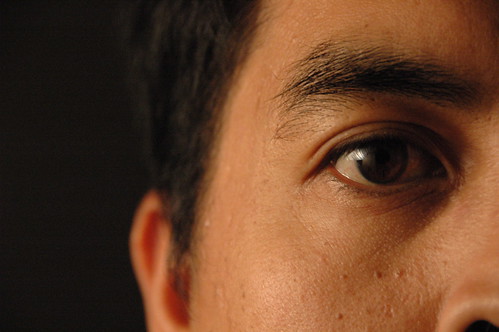Listen to the 6-minute podcast version
Watch a 1-minute introductory video
I used to wonder if other men had insecurities, and if they ever felt shame. Now, I know they do. It starts early, and it often imprisons them in a life of quiet desperation.
It was that way for me. By the time I reached Junior High, I had learned—internalized, accepted, and aspired to—what being a man meant: never show weakness, always be in control, work really hard, and be ready to fight if your pride is threatened.
And those beliefs led to my greatest fears and deepest feelings of shame.
Shame is the most powerful, master emotion. It’s the fear that we’re not good enough. (Brene Brown)

I can still remember those adolescent emotions as if they were yesterday: “Never share your insecurities.” “Act like you’re in control, even when you don’t feel that way.” “Working hard makes you worthy.” “Never back down from a fight.”
That way of thinking brought me to a lonely conclusion, which is a secret burden men carry without even realizing it: “You’re not good enough, but you can’t let anyone see your weakness.”
Those feelings became the blueprint for much of the rest of my life. And they haunt me still.
Perfectionism is the belief that if we do things perfectly and look perfect, we can minimize or avoid the pain of blame, judgment, and shame. (Brene Brown)
Understanding the Burden of Shame
Unfortunately, this thinking seems to be universal. Dr. James Mahalik, Professor of Psychology at Boston College, studied what people must do to conform to accepted social norms. The answer for men: always show emotional control, work is first, pursue status, and embrace violence.
Most men reading this know what I’m talking about. Many still believe it, and they do all they can to live up to those standards every day. So they use busy-ness, accomplishment, recognition, or addictions in an unconscious struggle to avoid the shame and stigma of weakness.
‘Crazy-busy’ is a great armor, it’s a great way for numbing. What a lot of us do is that we stay so busy, and so out in front of our life, that the truth of how we’re feeling and what we really need can’t catch up with us. (Brene Brown)
The secret burden men carry, that weight of shame we hide from the world, can be with us for our entire lives. Unless we do something about it.
But we don’t need to overcome the stigma all at once. Instead, we can take it a step at a time.
The answer is not to deny our feelings, or use substances or behaviors to numb the pain, but to learn to deal with our emotions in a healthier manner. And to connect to someone—our spouse, friends, a life coach—in an open and vulnerable manner. It starts by talking to one person.
Vulnerability is about showing up and being seen. It’s tough to do that when we’re terrified about what people might see or think. (Brene Brown)

The Secret Burden Men Carry
It is a life-changing breakthrough to learn that many of the accepted norms for being a man are wrong, or at least incomplete. In truth, there can be strength in weakness, many things are beyond our control, and pride is often dangerous. But it takes vulnerability and courage to live that way.
Our willingness to own and engage with our vulnerability determines the depth of our courage and the clarity of our purpose. (Brene Brown)
The secret burden men carry is one shouldered by many, but each of us thinks we’re the only one. That is a lie that can keep us imprisoned for much of our lives, until we learn the truth.
That it’s okay not to be okay, and we don’t have to always act tough, be in control, and hide our feelings. That we can escape living in shame by discovering the freedom found in vulnerability.
And if we have developed an addiction to help us deal with life, to realize it doesn’t have to be that way. We can escape that shame too. By realizing, perhaps for the first time, that we all have issues, and we are not alone. We can get better, and we can overcome the stigma of addiction.
It may take a new type of courage to talk to somebody about it. But, in the truest and deepest sense, that is what being a man is all about.
Courage starts with showing up and letting ourselves be seen. (Brene Brown)
Question: What is the personal version you have of the secret burden men carry?
Action: Pick one person—spouse, friend, coach—and have a vulnerable conversation.
Photo by BrownGuacamole  Photo by RLHyde
Photo by RLHyde 

